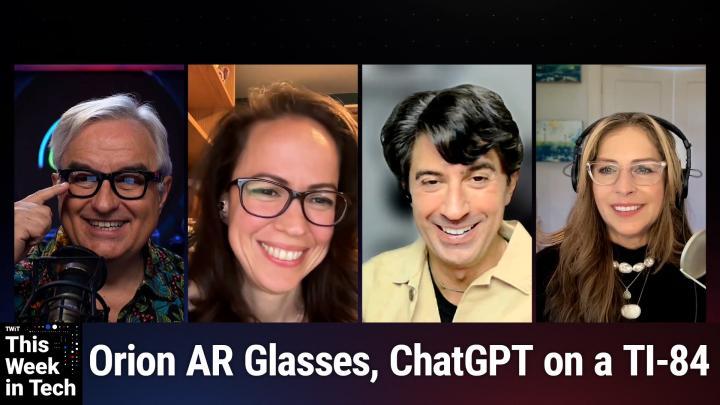Meta and the Future of Wearable Tech
AI created, human edited.
In a recent episode of This Week in Tech, host Leo Laporte and guests Parmy Olson, Denise Howell, and Daniel Rubino delved into the exciting world of Augmented Reality (AR) glasses. The discussion centered around recent developments from tech giants Meta and Apple, highlighting the potential and challenges of this emerging technology.
Meta's Ray-Ban Smart Glasses: A Step in the Right Direction?
Leo Laporte kicked off the conversation by praising Meta's Ray-Ban smart glasses, which he wore during the podcast. These glasses look like regular eyewear and have been selling well due to their discreet design. Parmy Olson emphasized the importance of aesthetics in wearable tech, noting that Meta's success stems from creating glasses that "don't look like tech glasses" and avoid making users "look nerdy and awful." The panel agreed that Meta's approach of starting simple and gradually adding features is a smart strategy. This contrasts with Apple's Vision Pro, which the group perceived as potentially overreaching.
Apple's Vision Pro: Too Much, Too Soon?
The discussion turned critical when Apple's upcoming Vision Pro headset was discussed. Leo Laporte expressed skepticism about the $3,500 price point and questioned whether consumers are ready to "strap a heavy computer on their face." Daniel Rubino suggested that Apple might have approached product development from the wrong end, cramming in every imaginable feature instead of starting simple and building up.
Parmy Olson noted the peculiarity of Apple's strategy, given that they typically start with a basic product and expand features over time, as they did with the iPhone. The group speculated on whether Apple might be working on a lighter, more affordable version of the Vision Pro to address these concerns.
The Future of AR: Opportunities and Challenges
The conversation then shifted to the potential applications and implications of AR technology on the heels of Meta’s unveiling of Orion at Meta Connect 2024:
- Real-time Translation: Leo Laporte mentioned the possibility of simultaneous translation, allowing real-time conversations across language barriers.
- Facial Recognition: Daniel Rubino brought up the potential for facial recognition, suggesting glasses could provide instant information about people you meet.
- Privacy Concerns: Denise Howell raised important questions about privacy, particularly in states with two-party consent laws for recording.
- Advertising: The panel speculated on how AR might be used for advertising, with Daniel Rubino half-jokingly suggesting we might see ads popping up in our real-world view.
The Augmented Road Ahead
While the future of AR glasses remains uncertain, the TWiT panel agreed that the technology holds immense potential. As Parmy Olson noted, "The more the tech disappears and it doesn't look like tech anymore... there's just going to be a whole boatload of new data and information" for companies to utilize. This Week in Tech's 999th episode emphasized the delicate balance tech companies must strike between innovation, user experience, and privacy concerns as they push forward in the spaces like AR.
Want to hear more in-depth analysis and lively debate on the latest in tech? Listen to the full episode of This Week in Tech for expert insights from Leo Laporte and his guests.
